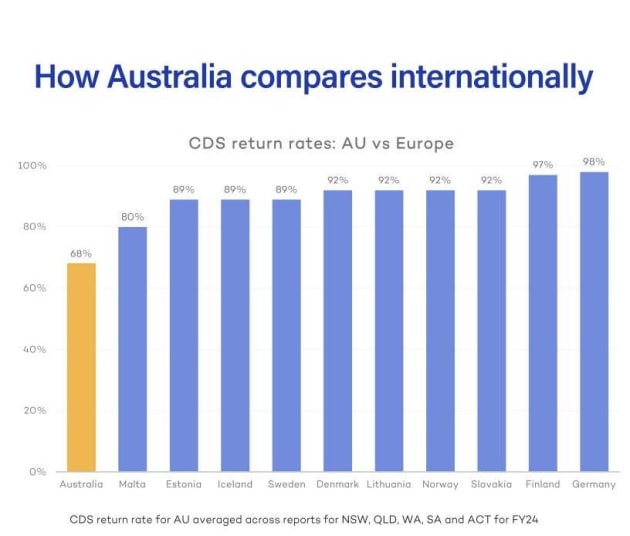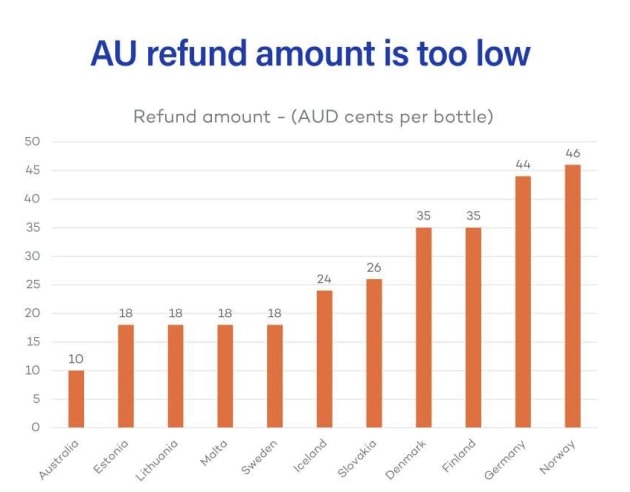A coalition of leading waste and recycling businesses and environmental organisations is urging federal and state environment ministers to double the national Container Deposit Scheme (CDS) refund amount from 10c to at least 20c per container, citing international best practice and declining recycling performance.
The joint letter, lodged this week ahead of the next Environment Ministers’ Meeting, is signed by Cleanaway, Pact Group, TOMRA, Re.Group, Boomerang Alliance, and Reloop Pacific. It calls for urgent reform to lift Australia’s CDS return rates and drive investment in the circular economy.
According to the group, Australia’s average container return rate sits at around 68%, falling well short of the 90%+ recovery levels achieved in many European Union countries.

These high-performing systems offer significantly higher refunds: €0.10 in Estonia (approx. AUD 0.18), €0.20 in Finland (AUD 0.35), and €0.25 in Germany (AUD 0.44).

The letter states: “There will not be any significant change in Australian CDS return rates unless there is a more substantial financial incentive for ordinary Australians to participate.”
The collective estimates that in 2023 alone, over 1.3 billion PET plastic soft drink bottles were landfilled or littered rather than recycled in Australia.
The proposal to lift the refund to 20c aims to encourage higher consumer engagement and reduce littering, while supporting community fundraising and charity initiatives, which often rely on returns as a revenue stream.
An increase in the refund amount would also support existing circular economy strategies by increasing the volume of high-quality material entering the recycling stream, creating opportunities for further investment and job creation across the waste recovery sector.
The group has also called for regular reviews of the refund amount in line with CPI to ensure the incentive remains effective over time.
Notably, Australia’s CDS refund has not been increased since 2008, when South Australia doubled its original 1977 rate from 5c to 10c per container. The collective argues that in the current economic climate, the current refund offers little incentive for widespread behaviour change.
In anticipation of opposition from beverage companies, the group notes that the three largest beverage manufacturers operating in Australia – Coca-Cola Europacific Partners, Asahi Beverages and Lion Nathan – reported combined regional profits exceeding $5 billion in 2024, citing strong volume growth.
“Increasing the refund amount has no impact on consumers who return their bottles or cans for a refund,” the letter states. “It simply provides a stronger incentive to do so.”
The signatories also encourage further expansion of convenient return infrastructure, such as in-store collection at retail outlets, which is commonplace in Europe.
The collective is calling for national leadership to prioritise CDS reform at the upcoming Environment Ministers’ Meeting, stating that raising the refund is a necessary and practical step toward a more effective and equitable container recovery system.





